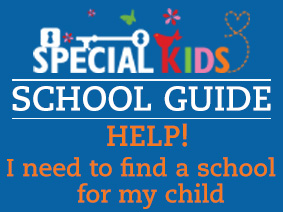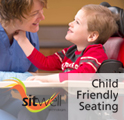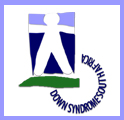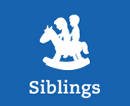We have found that the ability to control and resolve excessive anger is helpful in the overall treatment plan for children with ADHD. Excessive anger in ADHD and in other psychiatric disorders contributes to marked emotional and behavioural instability.
The three subtypes of ADHD are the predominantly inattentive type, the combined hyperactive-and inattentive type, and the predominantly hyperactve-impulsive type.
Inattention
• Often fails to give close attention to details or makes careless mistakes in schoolwork, work, or other activities
• Often has difficulty sustaining attention in tasks or play activities
• Often does not seem to listen when spoken to directly
• Often does not follow through on instructions and fails to finish schoolwork, chores, or duties in the workplace (not due to oppositional behavior or failure to understand instructions)
• Often has difficulty organizing tasks and activities
• Often avoids, dislikes, or is reluctant to engage in tasks that require sustained mental effort (such as schoolwork or homework)
• Often loses things necessary for tasks or activities (e.g., toys, school assignments, pencils, books, or tools)
• Is often easily distracted by extraneous stimuli
• Is often forgetful in daily activities
Hyperactivity
• Often fidgets with hands or feet or squirms in seat
• Often leaves seat in classroom or in other situations in which remaining seated is expected
• Often runs about or climbs excessively in situations in which it is inappropriate (in adolescents or adults, may be limited to subjective feelings of restlessness)
• Often has difficulty playing or engaging in leisure activities quietly
• Is often “on the go” or often acts as if “driven by a motor”
• Often talks excessively
Impulsivity
• Often loses things necessary for tasks or activities (e.g., toys, school assignments, pencils, books, or tools)
• Is often easily distracted by extraneous stimuli
• Is often forgetful in daily activities
ADHD is regularly seen in association with oppositional defiant disorder, depressive and anxiety disorders, substance abuse and learning disorders.
Anger and ADHD
A leading expert on ADHD has stated that many, if not the majority, of those with ADHD have problems with aggression and emotional control (Barkley 1990). In more than one-half of patients with attention-deficit hyperactivity disorder (ADHD), Oppositional Defiant Disorder (ODD) is also part of the clinical picture, (Turgay, A. 2009). Also, the importance of identifying and treating the anger in this disorder is supported by studies which reveal that ADHD is associated with a ten-fold increased incidence of antisocial personality (Klein, 1991; Weiss, et al.,1985), a twenty-five fold excess risk for institutionalization for delinquency (Satterfield, et al. 1982), up to a five-fold increased risk of drug abuse (Gittelman, et al. 1985; Klein, 1991), and up to a nine-fold increased risk of incarceration (Mannuzza, et al., 1989.). In addition, ADHD is the most common comorbidity in teenagers with substance abuse disorders.
We have found that the therapeutic use of forgiveness is effective in diminishing the excessive anger in ADHD, particularly in the hyperactive and impulsive types. The expression of anger in ADHD is not limited to the active release of this emotion. Some of the symptoms in the inattentive type of ADHD in some children may be the passive-aggressive expression of anger. These include not listening, failing to follow through with instructions, forgetfulness, or careless mistakes. Some youngsters engage in these behaviours deliberately by not cooperating with teachers or parents as a way to vent anger.
Many children and teenagers with ADHD are not aware of being overly angry, or, if they are aware, they are unable to identify the origin of their anger. In the uncovering phase of treatment, they begin to identify major disappointments in their lives and the anger associated with the hurts they experienced. Some decide to learn how to use forgiveness, although others discover benefits gained from holding onto their anger.
Also, ADHD is strongly associated with ODD (oppositional defiant disorder.) The failure to uncover and to treat the excessive anger in ODD, in our clinical experience, can interfere with the successful treatment of ADHD. In fact, when children with ADHD are not responding to medication, it is important to evaluate the person’s anger and the willingness to let go of this anger.
The old habit of relying on the expression of anger is hard to break and the development of a new habit of employing forgiveness to deal with excessive anger is acquired slowly. The following case study on treating anger in ADHD is from Helping Clients Forgive.
Case Study
Earl was a seven-year-old who was finishing first grade and presented with symptoms of ADHD, hyperactive and impulsive types, and symptoms of oppositional defiant disorder. He had almost no ability to control his angry behaviour. Both of his parents were adult children of angry alcoholic fathers and they had been in marital therapy for over a year working on controlling their tempers through the use of forgiveness. The level of excessive anger in the marital relationship had diminished significantly.
Earl was able to recognize that he had been very angry with his parents as a result of their fighting. His parents asked for his forgiveness, promised to try to work to overcome their bad tempers and to curtail their fighting. Earl nodded in agreement. The therapist responded, Earl, I would like you to see whether you can tell your parents now that you want to try to forgive them. He proceeded to verbalize his desire to forgive them and then went over to them and gave each a hug.
The therapist next asked his parents to explain to him the causes of the their fighting. They told Earl that each of them had brought a great deal of anger into their marriage from their family backgrounds from the paternal grandfather, the maternal grandfather, and grandmother. Without realizing what they were doing, they related that they had misdirected this anger toward each other. With an attempt at a smile, he said, I’m glad you told me. At least I’m not the reason you’re always mad. At the end of the session Earl was given a note from the therapist which suggested that daily he think, I want to forgive mommy and daddy for all their fights. At the succeeding sessions his ability to use forgiveness to control his anger was reviewed. Although he continued being angry, the episodes were somewhat less frequent and less intense.
Neither Earl or his parents were able to identify anyone in else in neighbourhood or at school with whom he might be angry. After an initial diminishment in his anger, it erupted again and he had great difficulty controlling his rageful feelings.
His mother visited the after-school program he attended, and was extremely upset by the way the older boys taunted him. Earl was ashamed of this treatment and had never told his parents. After an attempt to remedy the situation failed because of the failure of those in the after-school program to control the bullies, Earl’s mother removed him from this program and his explosive anger diminished greatly.
In the deepening phase, Earl was pleased that he had learned of a way to control his temper and that he was able to help his younger brother to work at controlling his anger by talking with him about forgiving others.
ADHD and later depression and other psychiatric disorders
All subtypes of ADHD in young children predict adolescent depression, (Chronis-Tuscano, A., et al, 2010). A longitudinal study of 96 adolescents with ADHD, who were diagnosed when they were 7 through 11 years old, demonstrated that they were at increased risk for the development of borderline, antisocial and avoidant or narcissistic personality disorders. Those with persistent ADHD were at higher risk for antisocial and paranoid personality disorders (Miller, C.J., et al., 2008).
Among adults with ADHD, several studies have indicated elevated rates of comorbid mood, anxiety and substance abuse disorders. In addition, adults with ADHD are often characterized by affective volatility, occupational instability, poor social relationships and impulsive and self-destructive behaviours. Investigators have begun to explore the degree to which personality disorders might account for some of the functional impairment associated with ADHD in adults (Miller, CJ, et al, 2008).
ADHD and aggression
Chronic aggression among children with ADHD poses a common clinical challenge. A substantial proportion of children with ADHD do not experience satisfactory reductions in aggressive behaviour with stimulant therapy. High rates of multi agent treatment in the clinical care of children with ADHD and conduct problems also suggest that suboptimal stimulant response is common. Prescription of antipsychotic and anti-manic mood stabilizing medications has surged in the past 10 years. A 2009 study demonstrated that the addition of Depakote increases the likelihood that aggressive behaviours will diminish (Blader, J., et al.)
Later Violence and ADHD
In a national longitudinal study of adolescent health, youth with hyperactivity/ impulsivity, but not in attention, independently predicted intimate partner violence later in young adult life, (Fang, X., et al., 2010.) It was previously known that conduct disorder in children was associated with intimate partner violence in young adult life, but now is also apparent that there is also an association between ADHD and intimate partner violence. This research demonstrates the importance of initiating a specific treatment plan for the excessive anger in youth with attention deficit hyperactivity disorder, hyperactive/impulsive type.
A treatment protocol for aggressive impulses in ADHD could involve initially uncovering the anger with the parent who has disappointed the youth the most, as well as any unjust treatment by a sibling or peers. Next, a recommendation could be given to try to let go of any impulses for revenge against the parent, most often the father, sibling, or peer so that this rage is not misdirected later at those who do not deserve it. Also, an attempt should be made to determine if the youth has modeled unconsciously after an aggressive parent. If this is identified, the benefit of repeating that parent’s good qualities but not excessive anger should be discussed. In our clinical experience, the more the youth works at forgiving an aggressive parent, the less likely they are to repeat the violent behaviour. Finally, it can be beneficial to suggest to young men, in particular, that male strength is not determined by aggressiveness but by having a strong, healthy personality.
The role of parents
Parents play an important role in helping children with ADHD learn how to understand and to resolve their anger. We encourage parents to learn about how virtues can diminish anger, especially forgiveness, through participation in family therapy sessions, through reading and through use of this virtue in own their lives. Parents then teach their children about the three options they have for dealing with anger,that is, denial, expression and forgiveness and recommend the benefits of using prompt forgiveness when they feel strong anger. They also correct their children when they overreact.
As a result of our 30 years of clinical experience with children with ADHD we believe that it is essential to uncover, identify and then treat their anger. We have found that a child’s learning how to understand and use of the virtue of forgiveness is very effective in the mastery of excessive anger. In every session we evaluate the child’s ability to work to resolve the anger associated with ADHD by the use of forgiveness and other virtues. Future research in all likelihood will demonstrate the many benefits of positive psychology and forgiveness in helping children with ADHD.
The original article can be viewed:
http://www.childhealing.com/articles/adhd.php





























